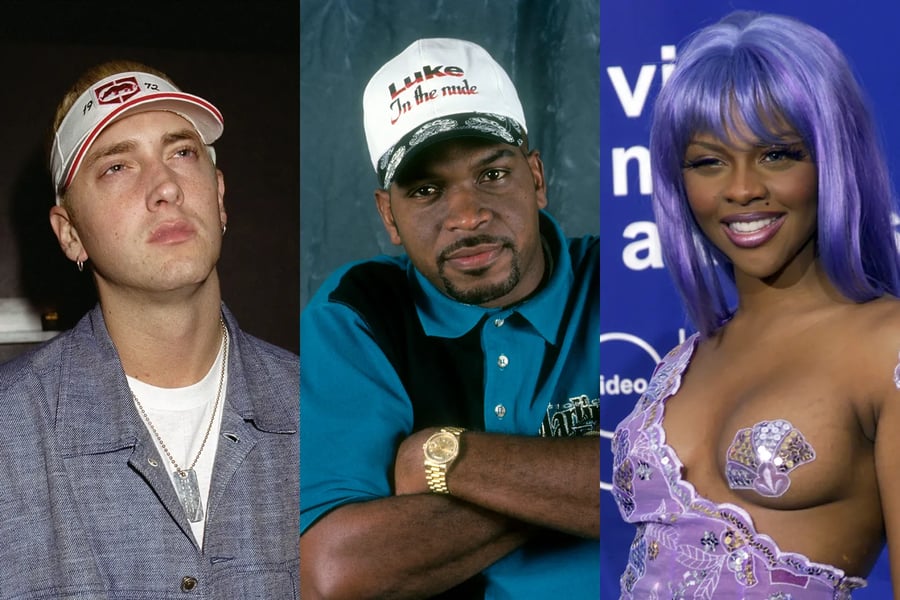The 25 Most Controversial Rap Albums of All Time
They shocked parents, scandalized politicians, and had radio programmers running for the hills

It may be a reckless exercise to try and list 25 rap albums memorable for the controversy they induced. Since the mid-Eighties, after the genre slowly evolved from a mostly 12-inch medium to one where full-lengths regularly appeared on the market, these recordings have not only incited sometimes-heated discussion among listeners but also overzealous legal and political fallout.
Readers of this piece may be right to wonder about the absence of Too $hort’s Born to Mack, which led authorities to arrest store owners who tried to sell it; or Paris’ 1992 album Sleeping with the Enemy, which featured provocations against the White House that prompted his label to drop him. Others may think of albums that law enforcement have used to press criminal charges, like C-Bo’s 1998 album Til My Casket Drops. (For more on that topic, read Erik Nielson and Andrea L. Dennis’ Rap on Trial: Race, Lyrics, and Guilt in America.) Throw in the titles where rappers censored their own lyrics, like YG’s My Krazy Life (“Meet the Flockers”). And what about “jailhouse” raps surreptitiously made behind bars, a tradition that includes incarcerated-but-not-silenced acts like C-Murder and his Penitentiary Chances with Boosie Badazz?
While short of exhaustive, this list of the 25 Most Controversial Rap Albums serves as a starting point, and a way to discuss aspects of a culture under constant pressure, whether artistically, legally, or politically. As an artform birthed by a Black and Brown underclass and embraced by a global audience, rap music expresses desires that challenge societal taboos about what can be said in public. Sometimes, it simply pushes against our norms about race, sex, and gender. Other times, it upsets us with brutally honest opinions about the world around us. If this list seems lacking for its omissions, then hopefully its inclusions inspire you to explore further.



























































